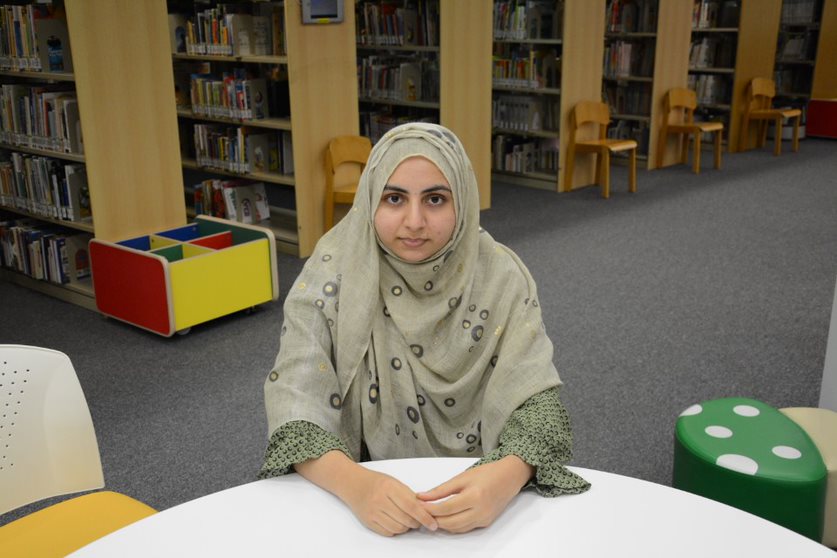| Programme Short Name | Study Mode | Normal Period of Study | JUPAS Code | EdUHK Programme Code |
|---|---|---|---|---|
| BA(ESDC) | Full-time | 4 Years (Year 1 Admissions) 2 Years (Senior Year Admissions) |
JS8675 | A4B093 |
| Enquiry (Admissions) | Enquiry (Programme) | Download Prospectus | Programme Website |
|---|---|---|---|
| (852) 2948 6886 Submit Your Enquiry |
(852) 2948 7247 a4b093@eduhk.hk |
Download Prospectus | Programme Website |
Programme Introduction
The BA(ESDC) programme aims to cultivate a new generation of English studies students with strong digital literacy skills through a digitally enriched curriculum. The programme provides a wide range of courses to build a solid foundation in English language, linguistics and digital literacy, consolidated by hands-on experience in using digital tools for language applications. Students will be empowered to develop digital contents for the learning and teaching of languages, to publish in digital media and to support and critically evaluate digital communication solutions. A combination of humanities and digital communication technology will allow students to further contribute to the transformation of education, media, and publishing in the digital age.
Programme Features
Digitally-enriched Curriculum
Cultivates a new generation of English studies students with strong digital literacy skills
Practical Experience
Offers mandatory internship to enable students to integrate and apply in real-life settings the knowledge and skills gained in their studies
Diverse Career Prospects
Provides excellent job opportunities in education, media, journalism, publishing, and communication
Programme Structure
| Domain | Credit Points (cps) | |
|---|---|---|
| Year 1 Admissions | Senior Year Admissions | |
| Major | ||
| - Core@ | 54 | 30 |
| - Cross-Faculty Core Course@ | ||
| - Major Interdisciplinary Course | ||
| - Major Electives | ||
| - Internship | ||
| - Living and Working in Our Country# | ||
| Minor / Electives | 30 | 18 |
| General Education | 22 | 6 |
| Language Enhancement | 9 | / |
| Final Year Project (Honours Project / Capstone Project) |
6 | 6 |
| Total: | 121 | 60 |
Notes:
(1) Classes will be held in Tai Po Campus and Tseung Kwan O Study Centre / North Point Study Centre / Sports Centre / Kowloon Tong Satellite Study Centre as decided by the University.
(2) Students admitted into this programme are required to visit the Greater Bay Area (GBA) and/or other parts of the Chinese Mainland. The programme may also require students to participate in other non-local learning experience for completion of the programme. While the visits are subsidised, students are required to contribute part of the estimated cost of the visits ("students’ contribution"), whereas any personal entertainment, meals expenses, travel document fee and personal insurance costs shall be at students’ own expense. The estimated cost of the visits and students’ contribution for students admitted to the coming cohort is yet to be available due to a variety of factors such as inflation of cost of the visits, trip duration, traveling expenses, the exchange rate, etc.
(3) @Students are required to undertake mandatory GBA visit(s) in Cross-faculty Core Course Component II and the Major Course LIN3044 English for Cross-Cultural Communication in the Greater Bay Area and Beyond.
(4) #For Year 1 Admissions only.
Internship
Students are required to participate in a compulsory internship (3 cps) in the Summer after Year 3 (for SY admission) / in the Summer after Year 3 or Year 4 Semester 1 (for FYFD admission from 2025 intake onwards). The Internship aims to enable students to integrate and apply in real-life settings the knowledge and skills gained in their studies. The Internship also prepares students to handle challenges they may encounter in real work situations, and provides opportunities for them to consider their future career directions.
Career Prospects/Professional Recognition
The BA(ESDC) programme provides excellent background for job opportunities in education, media, journalism, publishing, and communication. These fields have become highly data-intensive and require talents who can acquire and utilise information from the international English-speaking world at an unprecedented speed. The analytical training provided by English linguistics courses plays an essential role in all aspects of integration of the use of English in the digital world.
Graduates will be able to transfer their multidisciplinary knowledge and their digital and intercultural awareness to participate in future development of digital learning. They will also be well-prepared to work for international technological enterprises or any other business with technology-driven innovation in which good English communication skills, a high level of digital flexibility and English proficiency are required.








 Back to top
Back to top